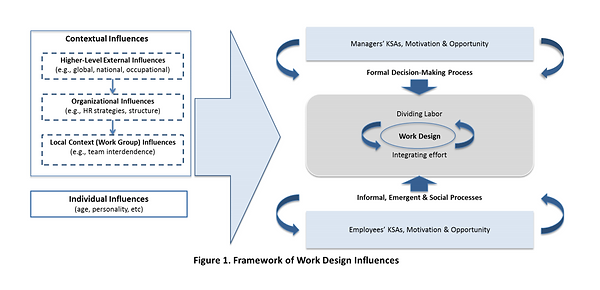
Work (Re)design in Practice:
Enablers of and Barriers to Good Work Design
Project Brief
There is a wealth of research on the importance of good work design. Yet, poor work design (i.e. work that is meaningless, monotonous, conflicting, or under-resourced) is pervasive across the globe. This project aims to understand the day-to-day realities of the design (and re-design) of jobs and organisations, and the factors that may enable or inhibit the design of good work (e.g. expertise, occupational culture, values, and cognitive biases).
Specifically, we are conducting case studies of work re-design in real organisations, conducting interviews, surveys, and collecting archival documents to construct a model of the process of work re-design, and its effects on outcomes such as individual wellbeing as well as organisational performance, innovation, and sustainability.
If you or your organisation is considering or currently conducting a re-design, and would be interested in participating in this research, please get in touch.
Contact for more information: Georgia Hay
Georgia Hay Sharon Parker
Partners: The WA Undiagnosed Diseases Program (Department of Health Office of Population Health Genomics & Genetic Services WA); Fiona Stanley Hospital; and other anonymous organisational partners

From Parker, Van den Broeck, & Holman (2017):


